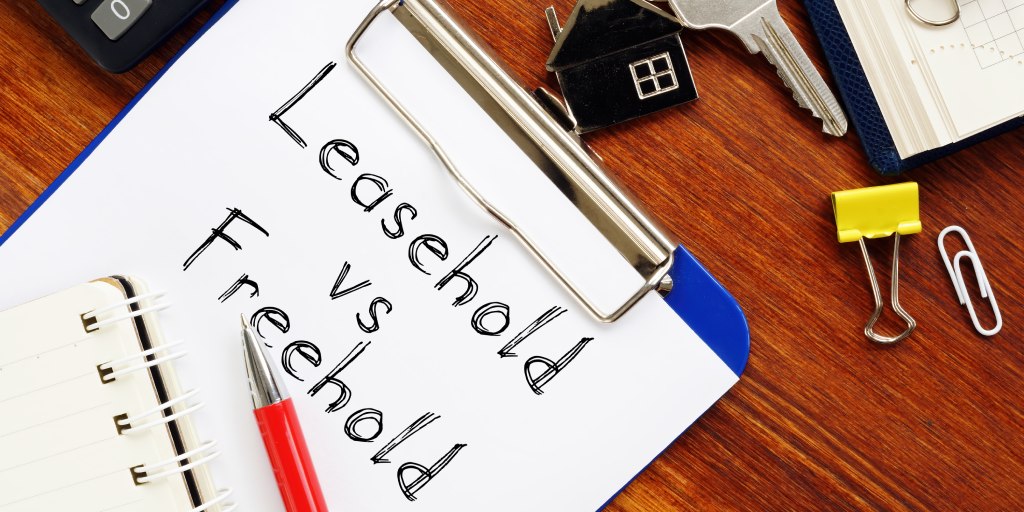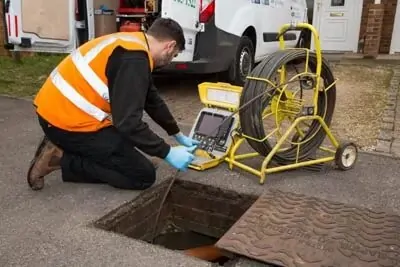Freehold vs Leasehold: What’s the Difference and What Should First-Time Buyers Know? (UK 2025 Guide)
Not sure what leasehold and freehold mean? This UK 2025 guide explains the key differences, the pros and cons of each, and what every first-time buyer needs to know before making an offer.


 Introduction: The Legal Detail That Can Shape Your Future as a Homeowner
Introduction: The Legal Detail That Can Shape Your Future as a Homeowner
If you’re buying your first home in the UK you’ve probably come across two confusing terms: freehold and leasehold .
These aren’t just legal labels—they affect your rights responsibilities costs and even how easy it is to sell your home later.
In this complete guide you’ll learn:
The difference between leasehold and freehold
What to check before buying a leasehold property
The pros and cons of leasehold vs freehold
What to do if you're offered a leasehold flat or house as a first-time buyer
 What Is the Difference Between Leasehold and Freehold in the UK?
What Is the Difference Between Leasehold and Freehold in the UK?
 Freehold
Freehold
You own the property and the land it stands on . There’s no time limit no ground rent and no freeholder (landlord) to deal with.
 Leasehold
Leasehold
You own the property for a set number of years but not the land it’s built on. You’ll often pay:
Ground rent (though this is being phased out on new leases)
Service charges (especially for flats)
Permission fees for changes or subletting
Leasehold ownership is like a long-term tenancy—commonly 99 to 125 years but some are 999 years or just 60–80 years.
 Leasehold vs Freehold UK: At-a-Glance Comparison
Leasehold vs Freehold UK: At-a-Glance Comparison
Feature | Freehold | Leasehold |
|---|---|---|
Ownership of land | Yes | No |
Time limit | None | Fixed term (e.g. 99–125 years) |
Ground rent | None | Yes (but banned on new leases) |
Service charges | Rare (unless private estate) | Common—especially for flats |
Permissions required | No | Yes—for alterations pets subletting |
More common in | Houses | Flats (and some new-build houses) |
Responsibility for repairs | Owner | Often shared (building-wide costs) |
Simpler to sell or remortgage | Yes | Can be harder with short leases |
 What First-Time Buyers Need to Know About Leasehold Properties
What First-Time Buyers Need to Know About Leasehold Properties
Leaseholds aren’t inherently bad—but they come with extra rules costs and fine print you must read carefully.
 Watch Out For:
Watch Out For:
Short leases (under 85 years) – can reduce property value and limit mortgage options
Escalating ground rent – some old leases double every 10 years
High service charges – sometimes £2 000–£4 000 per year in city-centre flats
Permission fees – e.g. £100+ just to change flooring or sublet
Ask your solicitor for a “leasehold pack” to review lease length fees and management company terms.
 Why Are Most Flats in the UK Leasehold?
Why Are Most Flats in the UK Leasehold?
It’s a legal and practical issue.
Since flats are stacked and share structural elements (roof hallways foundations) a single freehold owner (or management company) ensures:
Shared responsibility for maintenance
Access to building insurance
Rules for noise pets or communal spaces
Key point:
Almost all flats in England and Wales are leasehold (unless sold with a share of the freehold).
 Can You Buy a Leasehold House?
Can You Buy a Leasehold House?
Yes especially in new-build estates . But this has been controversial .
Some developers sold houses with:
Escalating ground rents
Service charges for private roads/play areas
Permission fees to extend even in your garden
 If you're buying a leasehold house ask:
If you're buying a leasehold house ask:
Can I buy the freehold later?
Is ground rent capped or £0?
Are there estate maintenance fees?
As of 2023 new leasehold houses are discouraged—and legislation is aiming to ban them entirely in future.
 Pros and Cons of Leasehold vs Freehold
Pros and Cons of Leasehold vs Freehold
 Pros of Leasehold:
Pros of Leasehold:
Often lower purchase price
Maintenance is partially handled (esp. flats)
Modern flats may include concierge gym etc.
Can be a great short-term or city-centre option
 Cons of Leasehold:
Cons of Leasehold:
Ongoing charges (ground rent service charge)
Less control over property alterations
Risk of poor management companies
Selling or remortgaging harder with short leases
Lease extensions can cost thousands
 Pros of Freehold:
Pros of Freehold:
Full ownership and control
No ground rent or lease constraints
Typically better resale value
No landlord to deal with
 Cons of Freehold:
Cons of Freehold:
All repair costs are your responsibility
Higher upfront cost
Older freehold homes may need more maintenance
 What Is a Share of Freehold?
What Is a Share of Freehold?
Some leasehold flats come with a “share of freehold” meaning:
You own the lease and a stake in the freehold (often via a limited company with other flat owners)
You can extend your lease for free
You and other owners manage service charges and repairs collectively
This gives you the best of both worlds—but requires group coordination.
 Can You Extend a Lease or Buy the Freehold?
Can You Extend a Lease or Buy the Freehold?
Yes under UK law you can:
Extend the Lease (Statutory Right)
After 2 years’ ownership
Add 90 years and reduce ground rent to £0
Typical cost: £5 000–£15 000 depending on lease length
Buy the Freehold (Enfranchisement)
Available for some houses or jointly for flats
Requires multiple owners agreeing (for flats)
Solicitor and valuation fees apply
Ask your solicitor early if you're planning to extend or buy the freehold— timing matters .
 Summary: Should You Buy Leasehold as a First-Time Buyer?
Summary: Should You Buy Leasehold as a First-Time Buyer?
Situation | Recommended Tenure |
|---|---|
Buying a flat |
|
Buying a new-build house |
|
Want full control and flexibility |
|
Short-term buy in a city centre |
|
Long-term investment |
|
 Final Word: Know What You’re Buying Before You Sign
Final Word: Know What You’re Buying Before You Sign
Understanding the difference between leasehold and freehold could save you thousands of pounds and future frustration. For first-time buyers the key is asking questions reading the lease and working with a solicitor who explains it clearly.
 Want help reviewing your lease or tracking hidden property costs?
Want help reviewing your lease or tracking hidden property costs?
Create your free WiseNest account and access tools designed to simplify your first home purchase.
Editorial Standards & Expertise

WiseNest Editorial Team
Our expert editorial team consists of seasoned technology professionals, business strategists, and digital transformation specialists with over 15 years of combined experience in helping businesses navigate the digital landscape.
This content is optimized to answer these questions comprehensively.
What is the difference between freehold and leasehold in the UK?
Freehold means you own the property and land outright. Leasehold means you own the property for a set period, but not the land, and must pay ground rent and service charges.
Is it OK to buy a leasehold property in the UK?
Yes, especially if it's a flat. But check the lease length, ground rent terms, and service charges before you buy. Avoid leases under 85 years unless you plan to extend.
What are the pros and cons of leasehold properties?
Pros: lower price, managed maintenance, amenities. Cons: extra fees, lease expiry risk, permission required for changes, harder to sell with short leases.
Should I avoid leasehold houses?
Generally, yes. Leasehold houses have caused controversy due to unfair fees. Prefer freehold houses, especially for long-term ownership.
How long should a lease be when buying?
Aim for 90+ years remaining. Leases under 80 years become expensive to extend and can reduce property value.
Can you extend a lease in the UK?
Yes. You can add 90 years and reduce ground rent to £0 after owning the property for 2 years. Lease extension costs vary.
What is a share of freehold?
It means you own your flat lease plus a stake in the freehold, usually with other owners. It offers more control and simplifies lease extensions.
Join 10,000+ Smart
First-Time Buyers
Get expert homebuying guidance, AI-powered document analysis, and step-by-step support for your first property purchase.



Growing community
Already have an account? Sign in here
Related Articles
Continue exploring our insights and tips

Should You Get a Drainage Survey When Buying a Home?
Thinking of buying a house? Learn why a drainage survey can save UK buyers thousands in repairs. Discover costs, benefits, red flags, and whether it’s worth it in 2025.

Buying a Flat Above a Shop: What You Need to Know
Thinking of buying a flat above a shop? This 2025 UK guide explains the pros, cons, mortgage challenges, and legal checks you need to make before committing.

Is Buying a Home with Tenants a Good Idea?
Thinking of buying a property with sitting tenants? This 2025 UK guide explains the pros, cons, legal issues, and financial risks of buying a tenanted home. Learn if it’s the right move for you.
